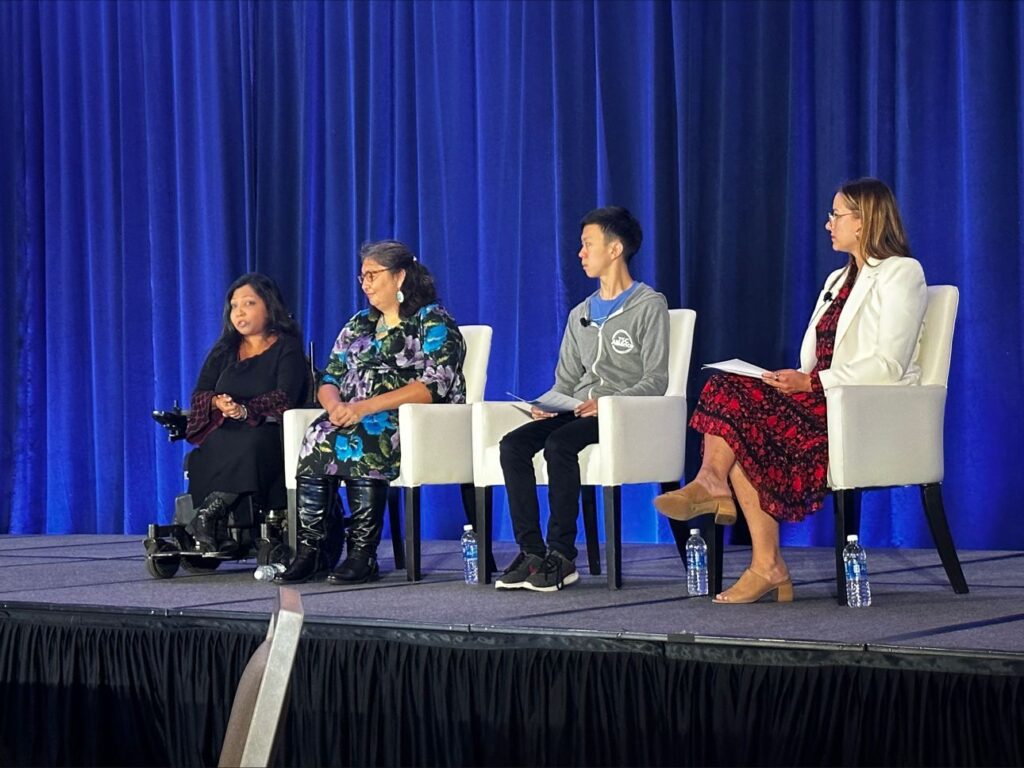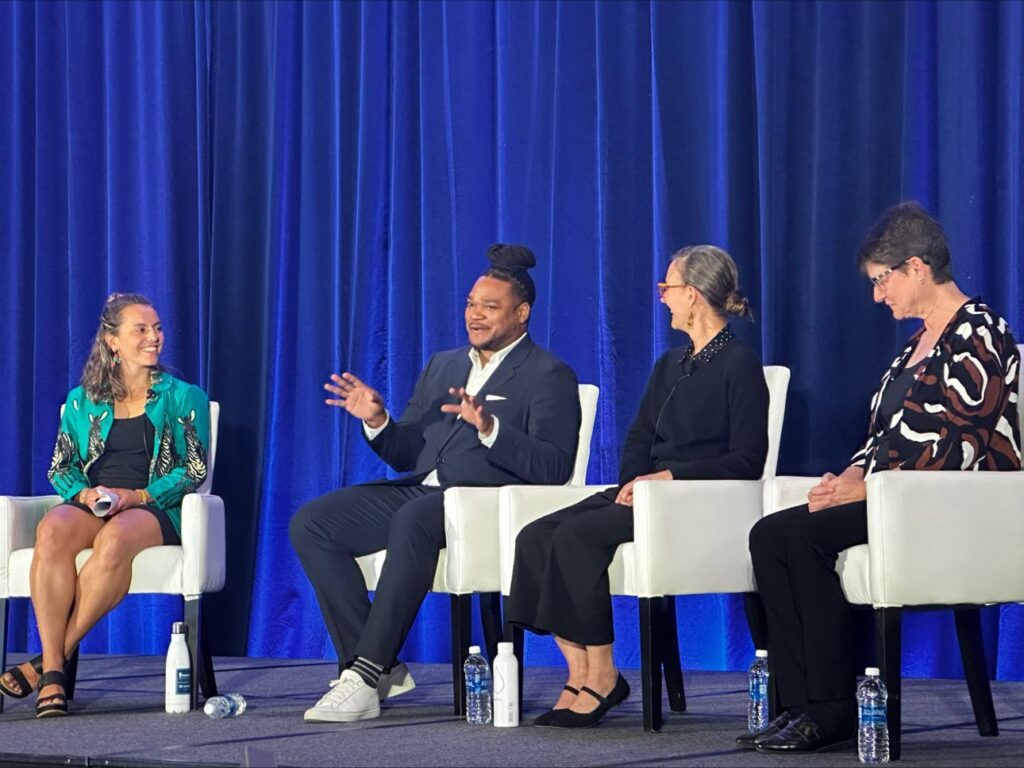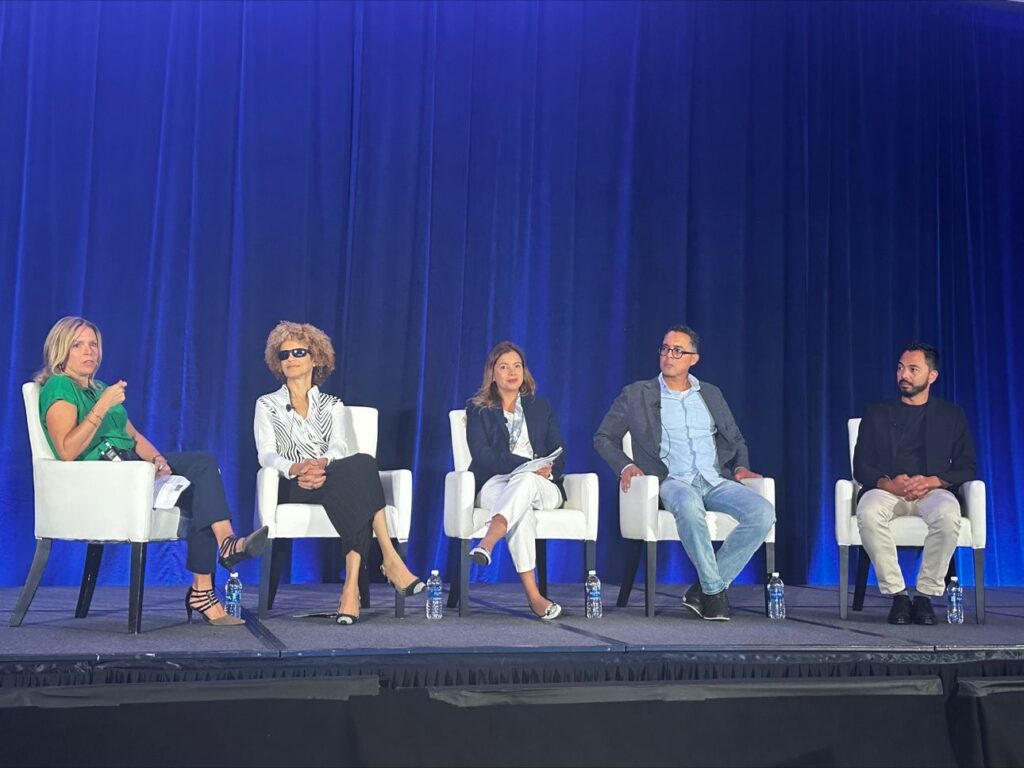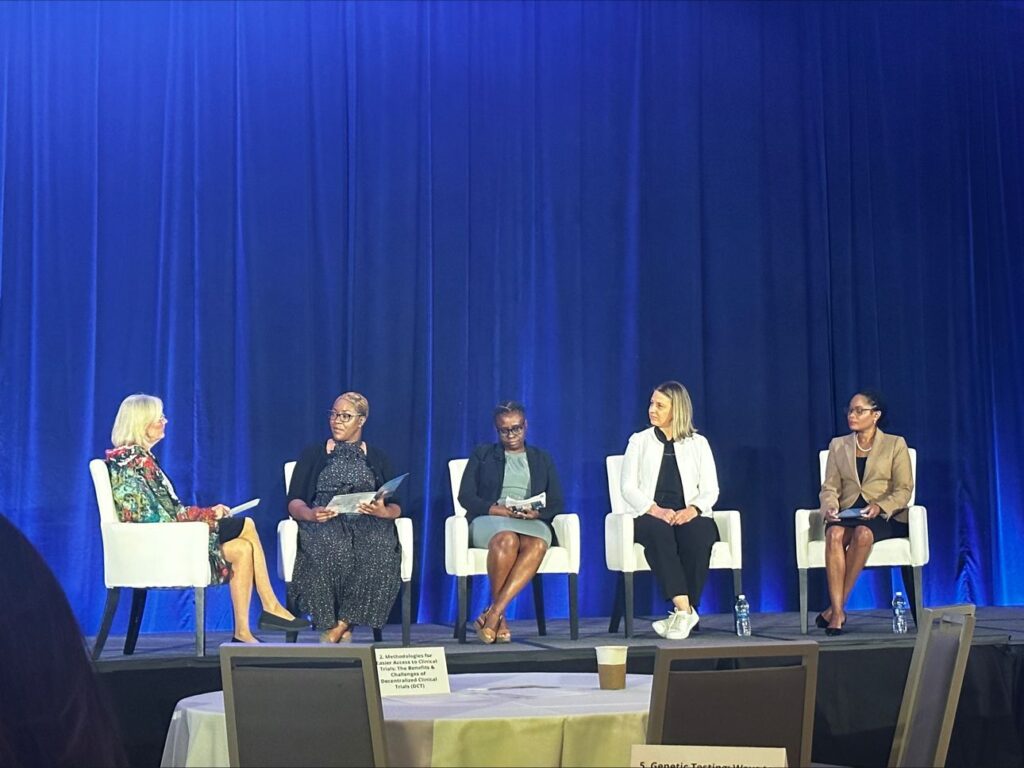Whether you attended in person or watched the live stream, we hope that you now have ideas to put Equity in Action. Here are the top 10 things that the Global Genes team learned during this year’s RARE Health Equity Forum:
10. We started with deep listening. We stopped, and we listened first. Do not walk in and think you know what a community needs. – Connie Lee, PsyD, CEO, Alliance to Cure Cavernous Malformation (Engagement Strategies: How to Find and Leverage Partnerships with Community Leader)
 9. 1 in 10 have a rare disease and 19% of the population lives with a disability. So, when we talk about the “rareness” of this conversation, it is actually very prevalent. – Michelle Rivass, MBA, MA, Senior Manager, Communications, Horizon Therapeutics (The Intersectionality of Identity, Culture, and the Rare Disease Experience
9. 1 in 10 have a rare disease and 19% of the population lives with a disability. So, when we talk about the “rareness” of this conversation, it is actually very prevalent. – Michelle Rivass, MBA, MA, Senior Manager, Communications, Horizon Therapeutics (The Intersectionality of Identity, Culture, and the Rare Disease Experience
8. If you do not have white skin, the presentation of the disease is different….We need representations of how this disease can manifest in different skin tones. – Katie Stevens, Executive Director, Team Telomere (Health Equity In Action: Health Equity Grant Recipients and RDDC Fellows
7. Not everybody with a disability wants a “cure” or a “treatment”. the only way you’ll know that is by engaging with them… listening and learning from communities is so important…. there is such a spectrum in the rare disease community and the only way we can understand that nuance is by engaging with them. – Neena Nizar, EdD, Founder & Executive Director, The Jansen’s Foundation (The Intersectionality of Identity, Culture, and the Rare Disease Experience)
6. Health equity is complex because it sits at the intersection of race, class, socioeconomic status, and history. And drivers of health inequity are often embedded in our society. Can we challenge each other that when we leave this space, for the people that we know, can we be intentional to know that their rare disease is not the totality of who they are. – Jevon Gibson, CEO, Fulton-DeKalb Hospital Authority (The New Generation of Medical Care? Bringing Health Equity and Positive Health Outcomes to Rural and Underserved Populations)
5. How do we move equity into action? Equity is about two things: transfer of resources and transfer of power. If you’re not doing those two things, you’re not doing equity work. If it doesn’t feel uncomfortable, you’re not doing equity work. – Esther Lucero, MPP, CEO, Seattle Indian Health Board (Disease, Distrust, Disparities and Direction: American Indian and Alaska Native Socio-political Histories, Historical Trauma, and a Pathway to Wellness)
4. Who does implicit bias put the responsibility on? The individual – the doctor, the nurse. We have to look beyond the individual. It’s less threatening to change at an institutional level. – Mario Estevez, Organizer / Trainer, Racial Equity Institute (Keynote Address: Racism – A Historical Foundation for Systemic Disparities)
3. Ten years ago, we were just talking about the problems. Now, we are bringing solutions to the table. Every step is another success. Next year, you can bring your success story back. – Eve Dryer, Vice President, Patient Advocacy, Travere Therapeutics (Day 2 Opening Remarks)
2. There is internal community work that needs to be done around the stigma against saving our own community members. We haven’t broken down that barrier internally. It has not become cool yet. There’s no TikToks on this. Whatever we can do internally to amplify the success stories. The external stuff, that’s what we’re here for. What can we do to shift policy? Who are the ones involved in funding streams? We need dedicated energy to change that stigma. You can scale this to any rare disease. – Dr. Italo M. Brown, MD, MPH, Assistant Professor, Emergency Medicine, Stanford School of Medicine (Engagement Strategies: How to Find and Leverage Partnerships with Community Leader)
1. If somebody is sharing their lived experience, honor that. Remember they’re sharing of themselves and that is everything, and a wonderful gift to receive. – Vanessa Hiratsuka, PhD, MPH (Diné/Winnemem Wintu), Assistant Professor, University of Alaska Anchorage, Center for Human Development (The Intersectionality of Identity, Culture, and the Rare Disease Experience)
What did you learn?
- Engagement Strategies How to Find and Leverage Partnerships with Community Leaders
- Uniendo Voces, Unlocking Solutions: Advancing Hispanic Inclusion in Rare Disease Advocacy and Research
- Understanding the Patient Perspective – How to Ensure Diverse Patient Participation in Clinical Trials and Research
- The Intersectionality of Identity, Culture, and the Rare Disease Experience

Stay Connected
Sign up for updates straight to your inbox.



